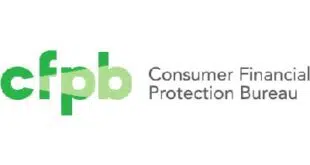Federal regulators on Tuesday issued their final rule for preventing terrorists, drug dealers, and other criminals from using prepaid cards for money laundering. The new rule from the U.S. Treasury Department’s Financial Crimes Enforcement Network (FinCen) subjects merchants and other non-bank entities that sell or manage prepaid cards to some of the same Bank Secrecy Act reporting and other provisions by which banks already must abide.
The rule defines who’s who in the prepaid value chain, requires those who are subject to it to maintain records for five years or more, and, when appropriate, report large transactions or suspicious activities to authorities. The regulations arose out of concerns by law-enforcement officials and financial regulators that criminals could take advantage of the booming prepaid card market to finance their activities anonymously, such as by cashing out the value on the cards or underlying accounts. FinCen floated a proposed rule last year to address those issues.
FinCen, however, provided a number of exemptions for the some of the most common prepaid cards. For example, so-called prepaid access products of $1,000 or less and payroll products that cannot be used internationally, do not permit transfers among users, and cannot be reloaded from a non-depository source, are exempt. So are closed-loop prepaid access products sold in amounts of $2,000 or less. Also excluded are government funded and pre-tax flexible prepaid programs for health care and dependent care. (Prepaid access products are products the government formerly called stored value.)
FinCen said it received 76 comment letters from depository institutions, service providers, program managers, private individuals, trade associations, and others as it developed its rule. FinCen appears to have expanded the exemptions in the initial proposal, according to Ben Jackson, a senior analyst who follows the prepaid industry for Meractor Advisory Group Inc., Maynard, Mass. “Those are good things,” he says.
FinCen lays out its reasoning point by point in a 69-page document that includes the rule’s background, definitions, and actual provisions. In it, FinCen says many letter writers wanted closed-loop cards exempted entirely, noting that their low dollar amounts and difficulty in converting the value to cash makes such a card “an inefficient, cumbersome tool for use by money launderers.” Some retailers also worried that they would have to revert to cash instead of giving a more convenient closed-loop prepaid card to customers who return expensive merchandise such as furniture. “FinCen agrees that low-dollar, closed-loop prepaid access poses limited money-laundering risks,” the document says.
The agency, however, noted that law-enforcement officials still had concerns, particularly in those cases where cards were loaded with high dollar amounts, had international utility, or involved consumer electronics or technology. “Accordingly, FinCen has chosen to set a dollar threshold of $2,000 for closed-loop prepaid access, which helps address the concerns of both retailers and law enforcement,” the document says.
The document doesn’t mention incentive cards, but that category of prepaid cards could be especially affected by the new regulations, according to Mercator’s Jackson. “That’s where you see a high dollar load on a closed-loop product; those can go up to $5,000,” he says.
Under the rule, participants in a prepaid card program can designate who among them is the so-called provider, the entity that largely controls and manages the program. Providers are required to register with FinCen and maintain data about customers of non-exempt cards for five years after the cards were last used. Required data include name, date of birth, address, and identification number. Sellers of covered prepaid access products must maintain customer data for five years after the sale. FinCen estimates that about 700 prepaid-access providers will be covered by the rule.





